Chuck Berry
Chuck Berry didn’t just invent rock & roll guitar — he perfected it. His signature guitar riffs and charismatic stage presence (including his iconic duck walk) laid the foundation for future generations, influencing everyone from Elvis Presley to AC/DC.
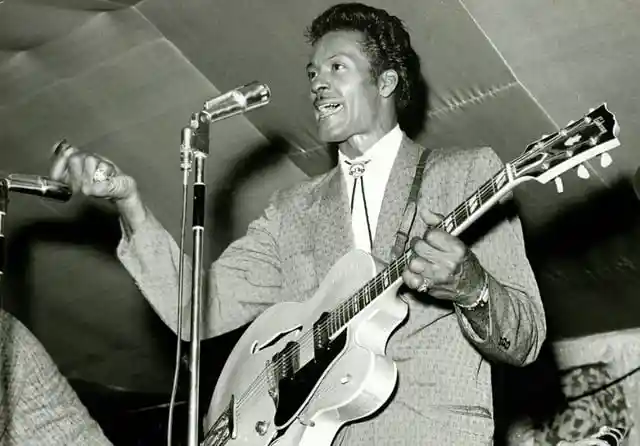
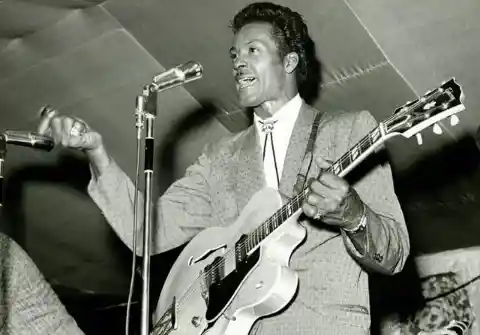
Songs like Johnny B. Goode not only highlighted his musical skills but also showcased his genius storytelling. Keith Richards summed up his impact perfectly with: “Chuck is the granddaddy of us all”. Cementing his legacy, Berry was one of the first musicians to be inducted into the legendary Rock n Roll Hall of Fame.
Eddie Van Halen
Eddie Van Halen would still be legendary even if his song Eruption was the only one he ever released. He redefined what was possible on the electric guitar, with his tapping technique making it feel like the instrument had been reborn.


Rage Against The Machine's Tom Morello aptly referred to him as “our generation’s Mozart,” a testament to his unparalleled musical abilities. And to think, he was entirely self-taught, although he did grow up in a musical household with a jazz pianist father - talent clearly ran in that family.
Jeff Beck
Jeff Beck, who passed away in early 2023, had a pretty interesting rise to fame. The London native left multiple bands (including The Yardbirds) and rejected fame continuously – but his passion was the guitar. He navigated through genres with ease, getting better and better as he went.
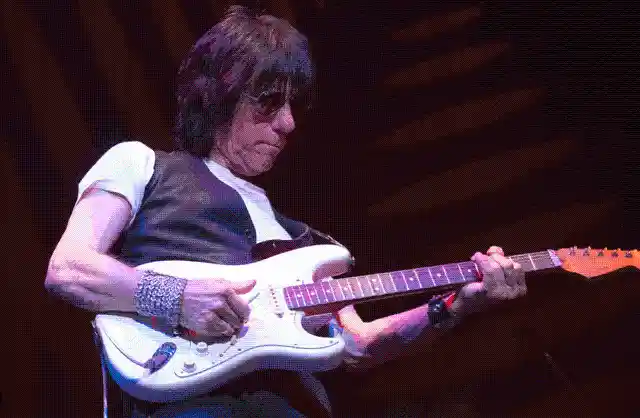
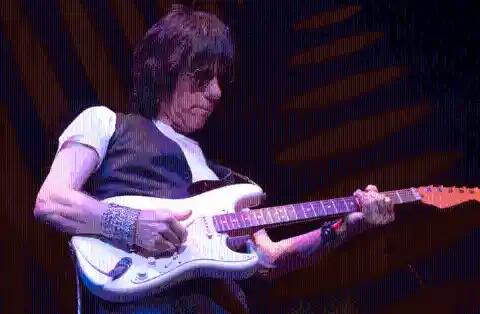
Beck’s innovative techniques and soundscape exploration have inspired countless musicians around the world, with legends like Jimmy Page and Mick Jagger paying their respects and condolences when he died. Plus, he managed to get his wish of not being in the spotlight.
Sister Rosetta Tharpe
Sister Rosetta Tharpe was a trailblazer, blending gospel music with rock and roll. Her powerful voice and unique guitar-playing style had a significant influence on the development of rock music. In fact, Bob Dylan once referred to her as a “powerful force of nature — a guitar-playing, singing evangelist”.
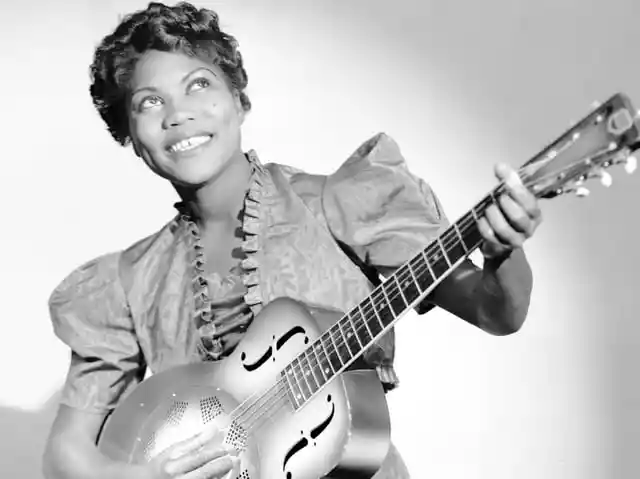
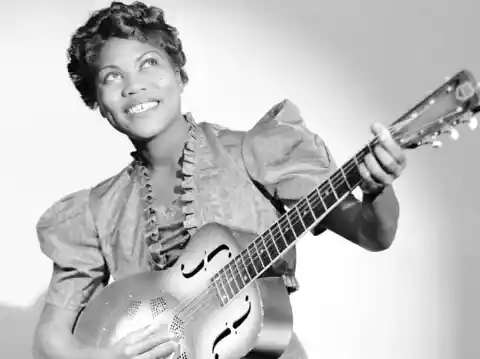
Sister Rosetta is sadly often overlooked in conversations about legendary musicians, probably due to the patriarchal nature of the guitar music industry. However, her influence, especially as a woman in a male-dominated field, is immeasurable.
Nile Rodgers
Nile Rodgers is a master of rhythm guitar, known for his tight, funky playing style. His work as one half of Chic helped define the disco era, and he has also powered a multitude of other classics like Sister Sledge’s We Are Family, David Bowie’s Let’s Dance, and Daft Punk’s Get Lucky.
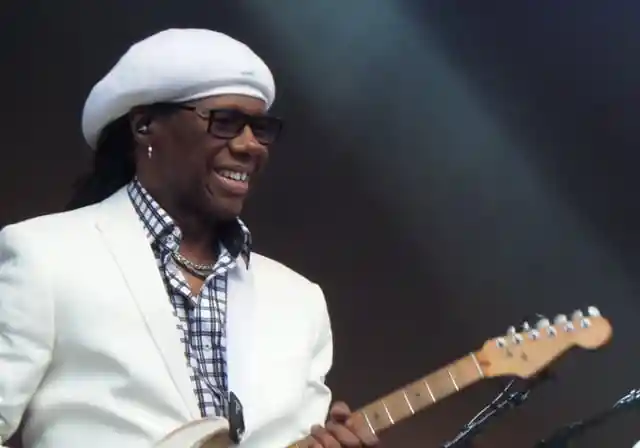
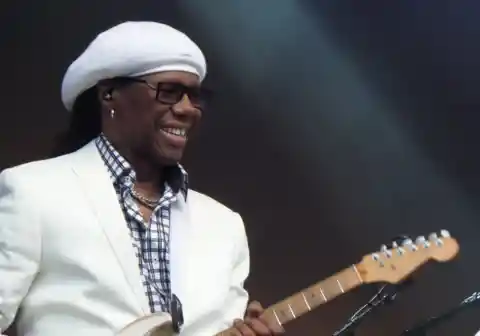
His ‘chic’ guitar riffs are danceable, catchy, and, most importantly, unforgettable. Rodgers is still going strong as an icon, winning two Grammys even as recently as this year for his work on Beyoncé's Renaissance.
B.B. King
Of course, B.B King had to feature on this list. Known as the king of the blues, his guitar, ‘Lucille’, was an extension of himself, and he used it to create some of the most memorable blues music ever recorded, and kept on touring well into his late eighties. Now that is pretty legendary.
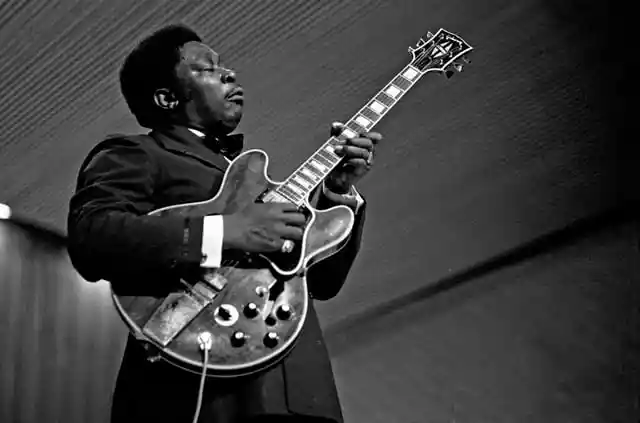
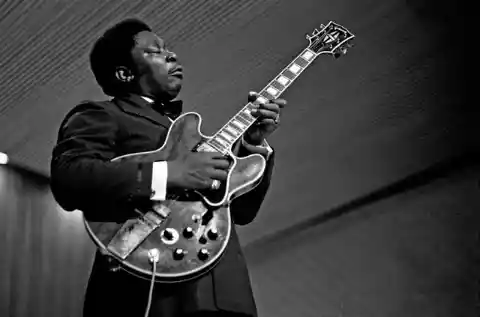
Not only was King a legendary guitarist, he was also a pioneer and activist for a number of important causes. He was a keen supporter of criminal rehabilitation, civil rights and was also a high-profile spokesman in the fight against diabetes.
Joni Mitchell
Joni Mitchell is more than just a songwriter; she’s a pioneer on the guitar. Due to childhood polio weakening her left hand, she created her own complex guitar language using a remarkable 50 alternate tunings. From the iconic Big Yellow Taxi to the introspective A Case of You, her innovative guitar work serves as a testament to her ingenuity as a musician.


Over the course of her iconic career, Mitchell has been awarded ten Grammys, as well as been inducted into the Rock n Roll Hall of Fame. She remains an influence on a vast number of female musicians even today, including Bjork, Taylor Swift and Lorde.
Duane Allman
As one half of The Allman Brothers Band, Duane Allman remains a legendary southern rock guitarist. Tragically, his life was cut short, dying aged 24 in a motorcycle crash. But, in his brief time, he created some of rock’s most enduring riffs and solos, like in Statesboro Blues.
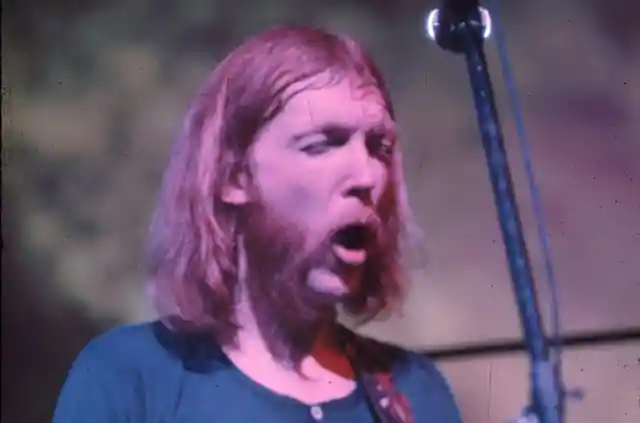
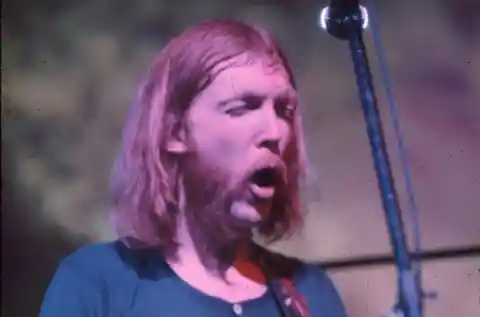
In a fitting tribute, the notes of Little Martha are engraved on his tombstone. In 2002, Rolling Stone ranked Allman second in a list of the 100 Greatest Musicians Of All Time, second only to Jimi Hendrix.
Carlos Santana
Carlos Santana’s guitar tones are unmistakable — smooth, passionate, and filled with soul. From his memorable performance at Woodstock to the success of 1999’s Supernatural, his guitar tones are instantly recognizable for their Latin American flavor and funk.


Carlos has the ability to make listeners not just hear, but feel every note. In fact, Prince, claimed him as a bigger influence than Jimi Hendrix, explaining simply that “Santana played prettier”. His music is still present on dancefloors even today, most recently in 2017 when his song Maria Maria was sampled on DJ Khaled and Rihanna's Wild Thoughts.
Jimmy Nolen
Often dubbed the ‘Father of Funk Guitar,’ Jimmy Nolen’s distinct ‘chicken scratch’ style of playing served as the backbone for James Brown’s band. He created the distinctive, choppy guitar riffs that became a signature of funk music.
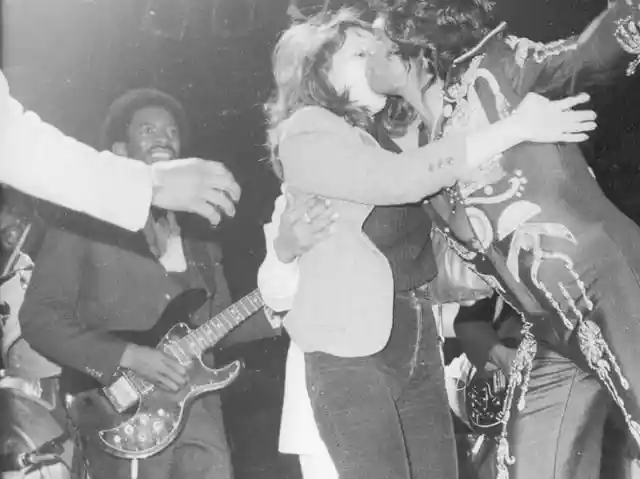
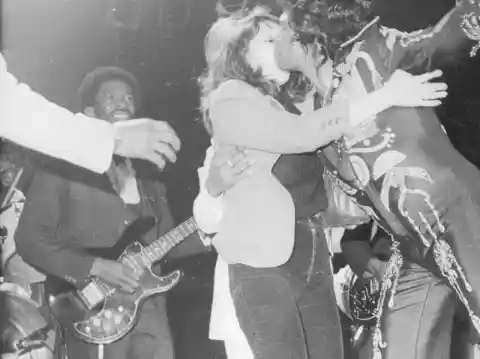
From his playing in tracks like Let Yourself Go, Cold Sweat, and Funky Drummer – Nolen’s impact is vast and undeniable. His impact can also be seen in modern hip hop, with plenty of contemporary songs sampling Brown's vocals and Nolen's riffs.
Jimmy Page
It’s hard to think of incredible guitarists without thinking of Jimmy Page, the mastermind behind Led Zeppelin. Jimmy Page’s guitar-playing isn’t just legendary—it’s transformative. From the hauntingly beautiful Stairway to Heaven to the hypnotic Communication Breakdown, Page’s ability to merge technique with emotion has made him a legend in the world of rock guitarists.
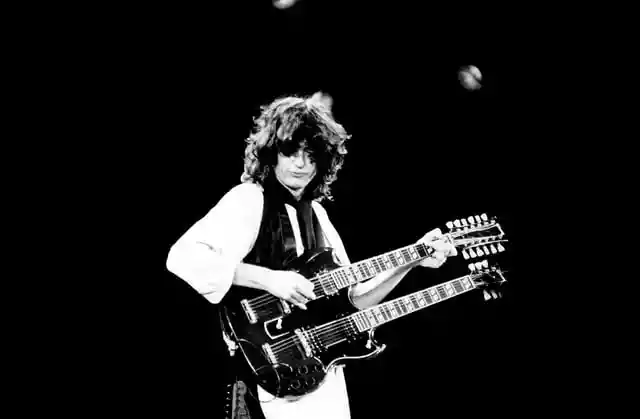
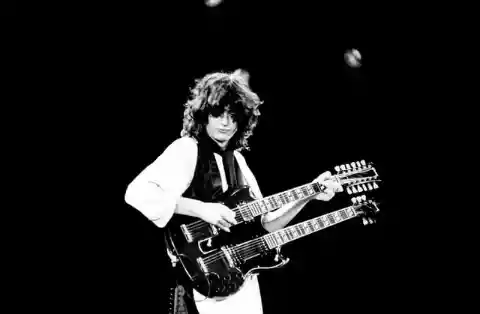
Page has influenced countless rockers throughout music history who themselves went on to become legendary musicians, including Eddie Van Halen, Slash and Kirk Hammett. Without Page, guitar music - and rock music in general - would be a place much quieter and much less interesting.
Jimi Hendrix
It comes as no surprise that Jimi Hendrix is towards the top of this list. His mainstream career only actually spanned four years, but his impact was timeless. Sometimes playing with his teeth, or behind his back, he transformed rock ‘n’ roll with his unparalleled stage presence and improvisational skills.
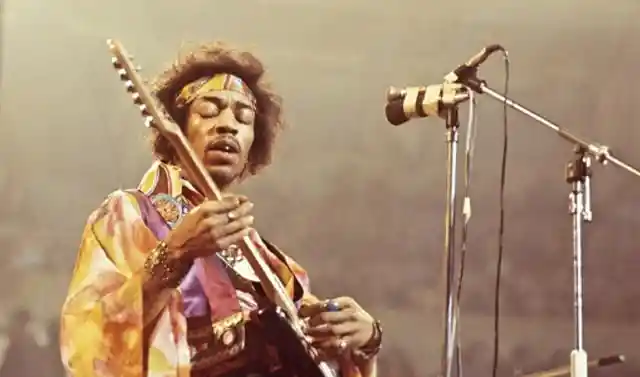
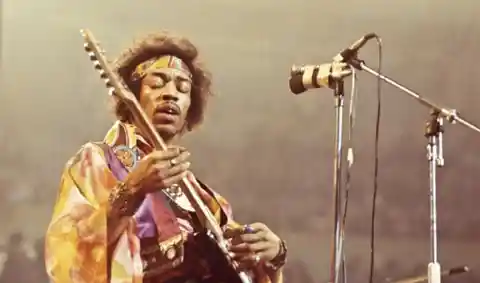
With hits like Purple Haze and Voodoo Child, his virtuosity wasn’t just about playing the guitar, but living it. When the phrase 'legendary guitarist' is mentioned, Hendrix will surely be the one who springs to mind for most people - even ones who aren't familiar with his music.
Tony Iommi
The godfather of heavy metal guitar, Black Sabbath’s co-founder Tony Iommi’s powerful riffs on the likes of Paranoid and Iron Man birthed a genre. Iommi is known for his distinctive low pitch sound, slackening his strings to create a distinctive doom sound.
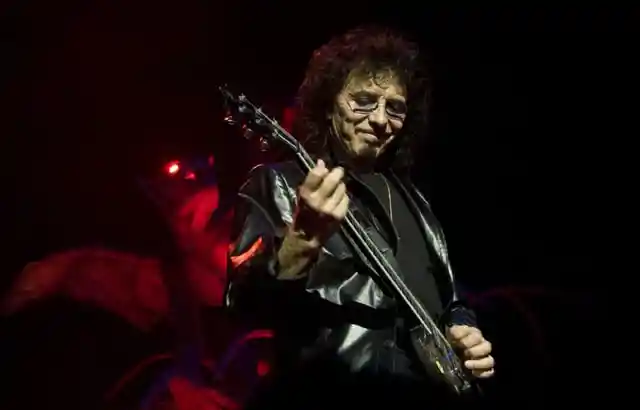
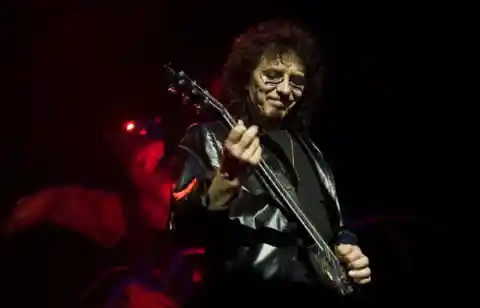
Did you know, that unique sound can be largely attributed to a factory accident that saw him lose two of his fingertips? He uses plastic finger caps which force him to dig into the neck harder for his chords and solos.
Prince
Ah, the legendary Prince. With Purple Rain, he played arguably the greatest power-ballad guitar solo in history. His style was eclectic, combining rock, funk, and blues. Watching Prince play was like witnessing electricity personified. In fact, he once said: “Playing electric guitar your whole life does something to you. I’m convinced all that electricity racing through my body made me keep my hair.”
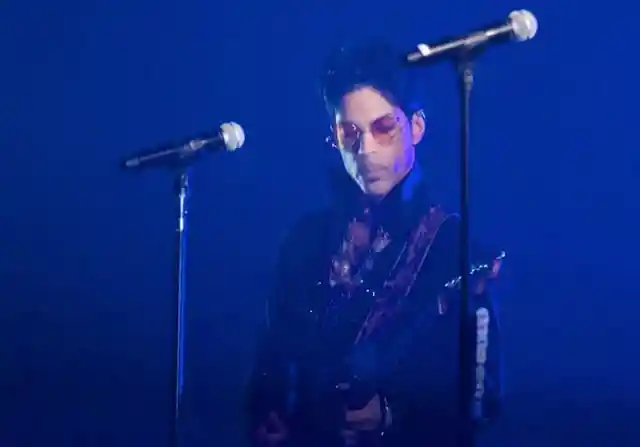
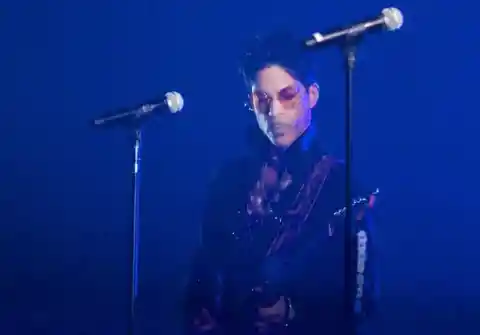
Not only was Prince a game changing musician, he was also known for his flamboyant stage presence, playing with gender norms to create an androgynous look that complimented his smooth and sensual music.
Keith Richards
Rolling Stones’ Keith Richards, aka ‘Keef’, is the embodiment of rock ‘n’ roll. He’s always made it look so easy, and his guitar work provided the backbone for some of the most iconic rock songs ever, from Satisfaction to Start Me Up.
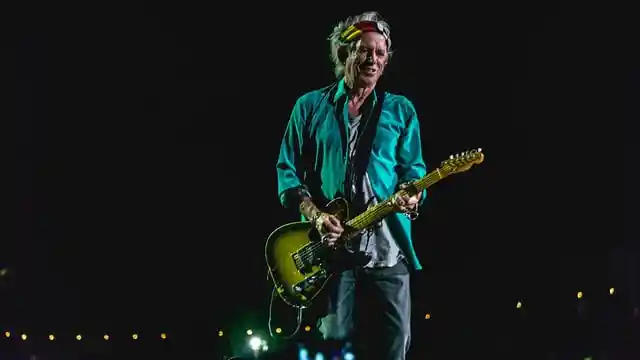

Richards’ ability to create timeless riffs that are both simple and powerful has solidified his place as one of the greatest guitarists ever. His legendary reputation as being Britain's oldest party boy, with plenty of wild substance-based tales under his belt.
Robert Johnson
Robert Johnson remained relatively unknown until decades after his 1938 death. Yet, the 29 songs he recorded greatly influenced countless rock icons. Everyone from Led Zeppelin to the White Stripes have covered his tracks, trying to replicate his groundbreaking technique and feel.
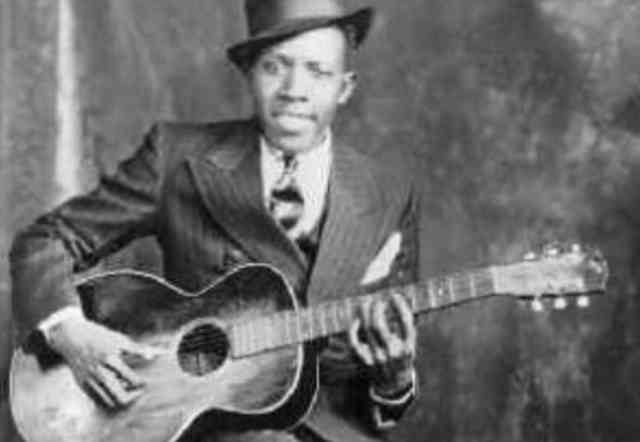
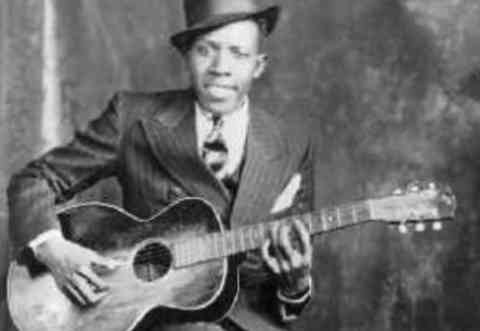
Johnson’s legacy in rock and blues is as impressive as it is unique, as well as coming with its own urban legend. Famously, many believe Johnson's musical success is owed to his meeting with the Devil himself at a crossroads.
Mother Maybelle Carter
Mother Maybelle Carter, often known as the matriarch of country music, was an absolutely groundbreaking guitarist. Her innovative “Carter scratch” style became a signature of the genre, along with her band The Carter Family becoming one of the first commercial rural country music groups.
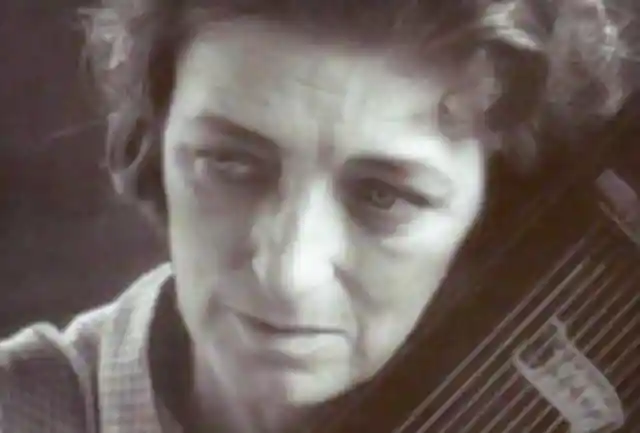
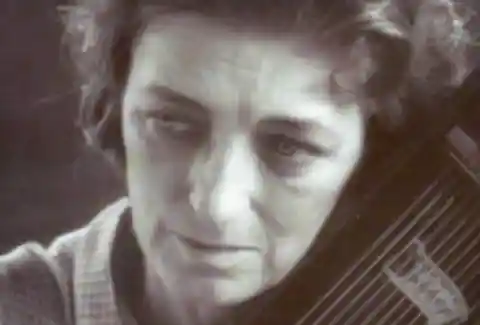
With her incredible dexterity, she shaped the rhythm and texture of a whole era of country songs. Courtney Marie Andrews once said she was “perhaps the most emulated guitar player of all time.”
Tom Morello
Tom Morello is the architect behind the raging sound of Rage Against the Machine and Audioslave. Fusing hip-hop with hard rock, Morello’s guitar solos are actually often mistaken for turntable scratches. His distinctive use of pedals, and an ability to push the boundaries of what a guitar can sound like, places him as a trailblazer of modern rock.
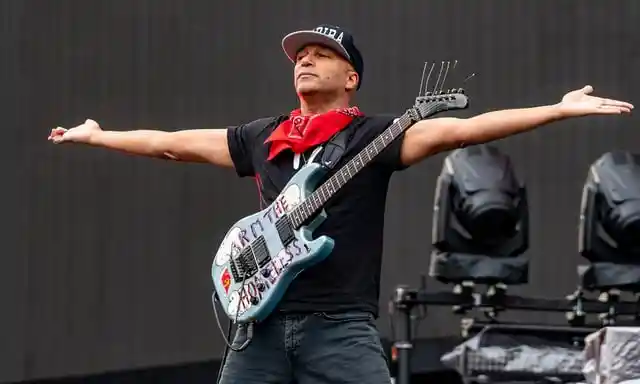

Like all good rebel rockers, Morello is keenly involved in political activism, and has supported a number of issues such as immigrant rights, union rights and the abolition of the death penalty. Alongside fellow rocker Serj Tankian, Morello even founded Axis of Justice, a non-profit organization dedicated to the fight for social justice.
Freddie King
Freddie King, a pivotal figure in electric blues guitar, bridged blues and rock with his crisp style, influencing many, including Eric Clapton, Jeff Beck, and Mick Taylor. Songs like Hideaway became blues standards due to his unique melody and rhythm.
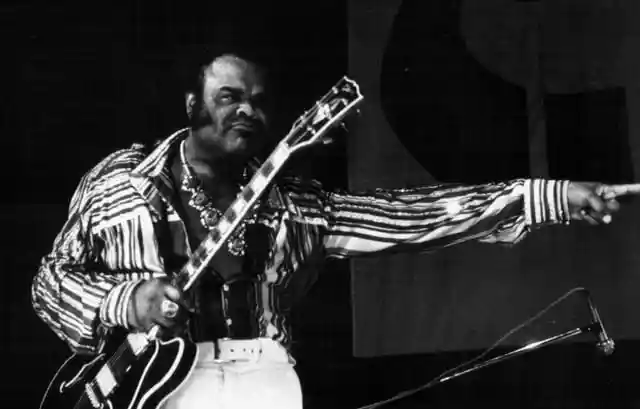
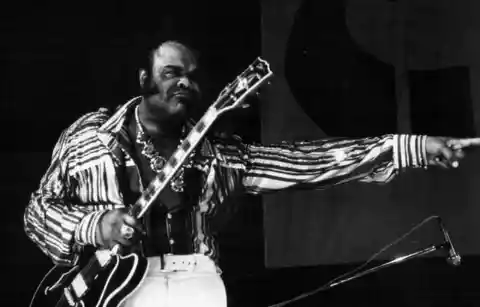
Derek Truck praised King’s impact, staying: “the way he used it — man, you were going to hear that guitar.” Along with Albert King and B.B. King, King is considered one of the aptly-named Three Kings of the Blues Guitar, and listening to his work, it's easy to see why.
Stevie Ray Vaughan
Stevie Ray Vaughan was a key figure in modern blues, reinvigorating the genre in the ’80s and influencing many subsequent guitarists, including John Mayer, who said the first time her heard Vaughan, he thought: “wow – that’s the thing, that’s not just strumming chords!”.
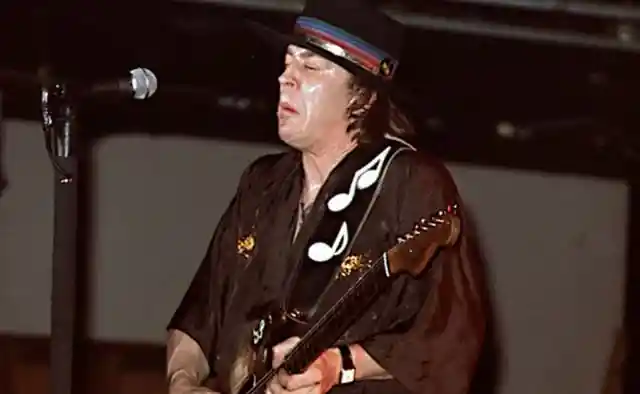
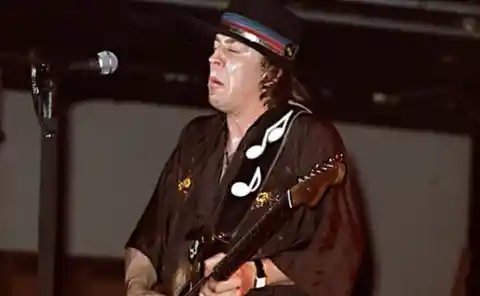
Tragically, his life was cut short in a 1990 helicopter crash, but his timeless guitar work lives on. In 1994, the state of Austin, TX, erected a memorial in Vaughan's honor, keeping the memory of his work and music alive.
Randy Rhoads
Another guitarist whose life was tragically cut short is the legendary Randy Rhoads. His revolutionary neoclassical technique made a huge impact on tracks like Crazy Train and Mr. Crowley during his time with Ozzy Osbourne from 1979, until his tragic death in a plane crash in 1982 at age 25.


Tom Morello called him “the greatest hard-rock/heavy-metal guitar player of all time.” Rolling Stone, who were originally critical of Rhoads' playing, posthumously listed him as one of the greatest musicians of all time.
Albert King
Another one of the ‘Three Kings,’ Albert King’s influence on blues and rock guitar can’t be overstated. With his upside-down Flying V guitar, King played with raw emotion, bending strings in a way that made his guitar weep and wail.
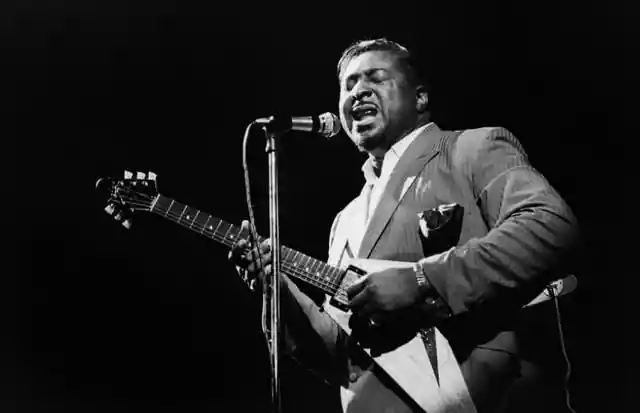
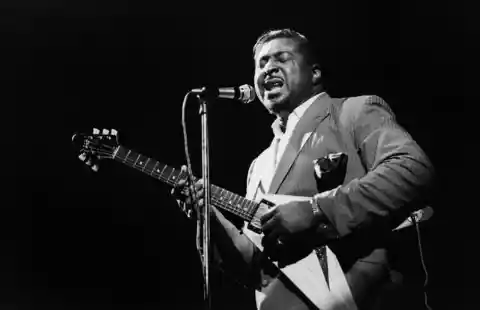
Tracks like Born Under a Bad Sign not only defined his career but also became staples that future legends, like Jimi Hendrix, would learn from. Endearingly, due to his towering height, King was often referred to as 'The Velvet Bulldozer'.
James Hetfield and Kirk Hammett
Our first duo to feature on the list, Metallica’s James Hetfield and Kirk Hammett are titans of heavy metal. Hetfield provides the rhythmic backbone with his riffs, whilst Hammett shreds through solos.

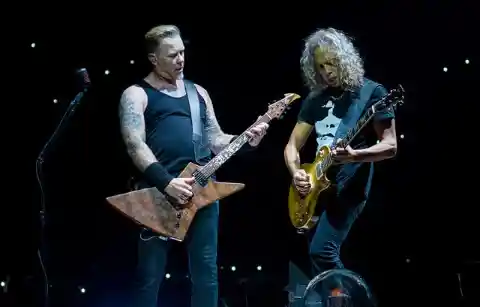
Their collaborative brilliance is unmatched, as evidenced on such enduring metal classics like For Whom the Bell Tolls, Master of Puppets and Enter Sandman. While both are equally talented on their own, it's when the pair come together that magic is truly made.
James Burton
James Burton, often referred to as the ‘Master of the Telecaster’, has been instrumental in shaping the sound of rock ‘n’ roll since the 1950s, as a session musician for legends like Elvis Presley and Johnny Cash. A member of of the Rock and Roll Hall of Fame since 2001, his mark on the guitar world is undeniable.
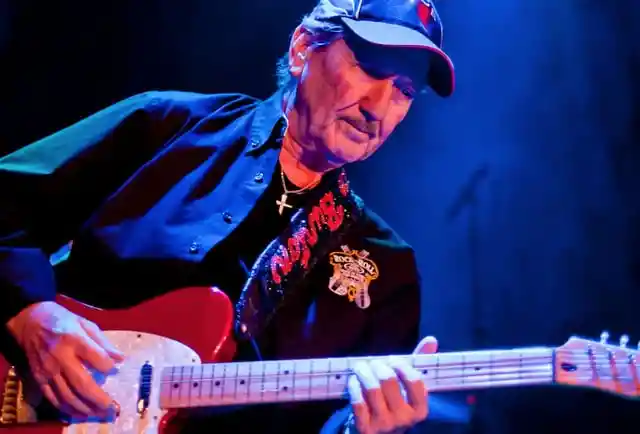
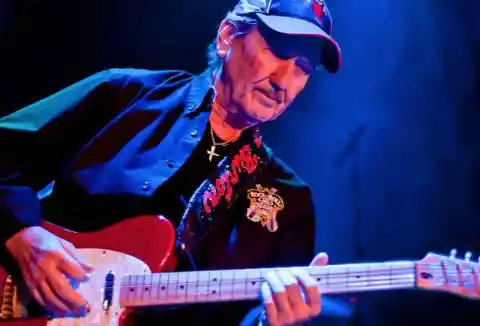
Burton has been a member of the Rock and Roll Hall of Fame since 2001, with the legendary Keith Richards giving his induction speech. If that doesn't prove Burton's status as a bonafide legend, nothing will.
John Frusciante
There’s a certain magic that John Frusciante brings to the Red Hot Chili Peppers, transforming their sound with his innovative guitar work. From the strumming in Scar Tissue to the riffs in Give it Away, Frusciante has proven himself to be a versatile and integral part of the band’s success.


His solo ventures provide further evidence of his commitment to pushing the boundaries. After struggling with drug addiction during this period, he rejoined the Chili Peppers for their Californication album, and his spiritual solos helped to propel them further to stardom.
St. Vincent
In the world of guitarists, St. Vincent could be described as a kaleidoscope of creativity. Her style, far from conventional, has an avant-garde flair that’s super compelling. Take a moment to listen to the exciting riffs in Digital Witness or the hypnotic undertones of Cruel. What you’re hearing is a guitarist unafraid to redefine boundaries. St. Vincent really is rewriting the rulebook.


Cementing St. Vincent (real name Anne Clark) as a bonafide guitar legend is the fact that she designed a signature guitar for Ernie Ball. Known as the HHH, the guitar has been used by various female guitarists including Eva Hendricks and Emily Roberts.
Buddy Guy
Known for his electrifying performances and passionate vocals, Buddy Guy is a blues icon. His guitar solos in songs like Damn Right, I’ve Got the Blues are a showcase of his skill and deep emotional connection to his music.
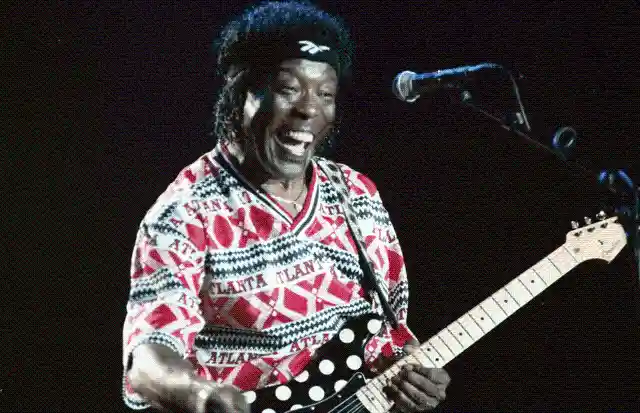
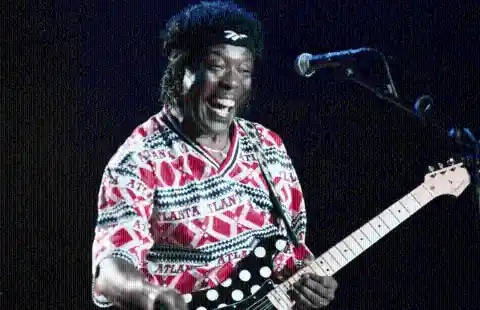
Introducing him at his 2005 Rock and Roll Hall of Fame induction, legendary guitarist Eric Clapton spoke highly of Guy, declaring that: “He was for me what Elvis was probably like for other people".
David Gilmour
Next up is David Gilmour, whose name is synonymous with otherworldly guitar solos. As the lead guitarist Pink Floyd, his emotive solos on the likes of Comfortably Numb and Shine On You Crazy Diamond are etched into rock history.
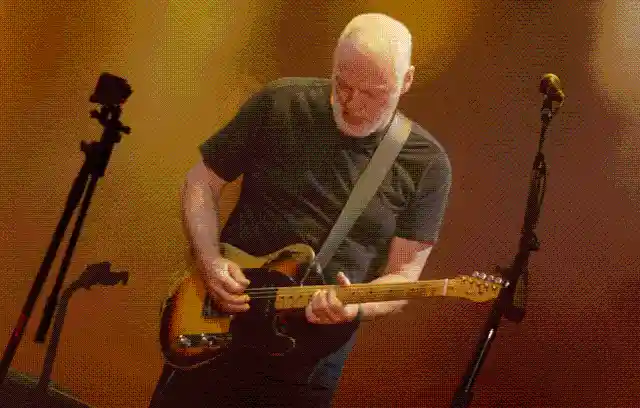
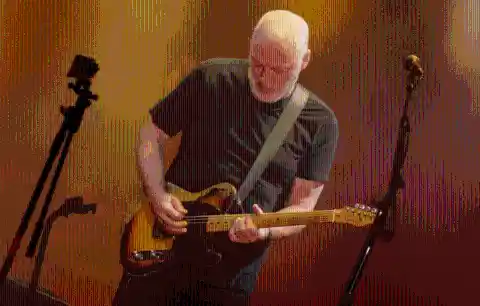
Gilmour has long used his platform to raise millions for charity, including auctioning off 120 of his most precious guitars to raise money for the environmentalist charity, ClientEarth. Truly, a legend on and off the stage.
Eddie Hazel
Parliament-Funkadelic’s Eddie Hazel took funk guitar to places it had never been before. His psychedelic solos and innovative style, especially on the 10-minute guitar solo in Maggot Brain, are a testament to his genius.
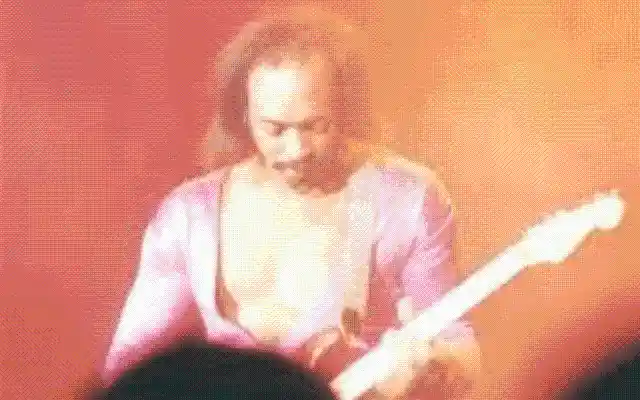
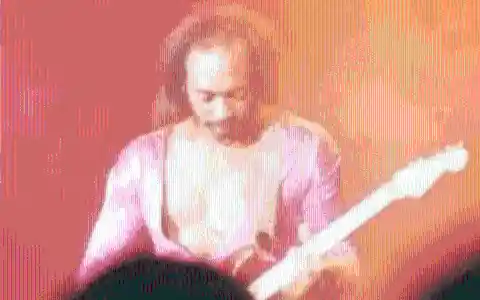
Best known for his work using the classic Fender Stratocaster, Hazel’s guitar skills aren't just remembered for the notes, but for the stories they told and emotions they evoked. Have you ever heard a guitar speak? Listen to Eddie Hazel.
Neil Young
Neil Young’s guitar playing and emotive songwriting have left an indelible mark. With tracks like Heart of Gold, Rockin’ in the Free World and his legendary work with supergroup Crosby, Stills, Nash & Young, to Young his guitar isn’t just an instrument, it’s an extension of his soul.
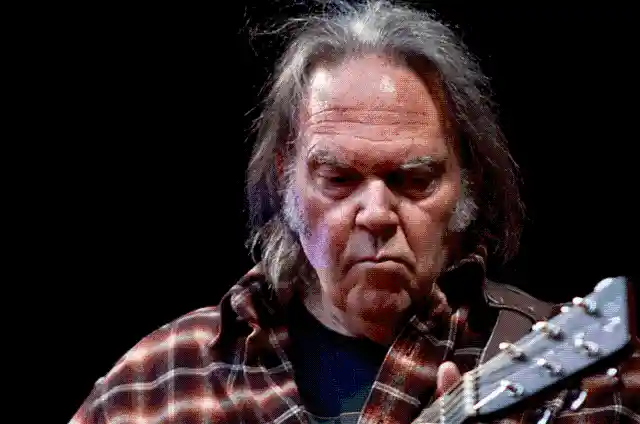
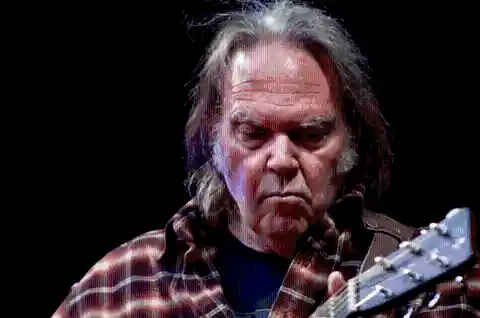
In 1992, Young said: “Nobody gives a s*** if you have good technique or not. It’s whether you have feelings that you want to express with music.” Even these days, Young is keenly outspoken on the issues that are important to him, speaking up about misinformation online and the price jacking of concert tickets.
George Harrison
Of course, George Harrison had to make this list. George Harrison, often dubbed the ‘Quiet Beatle’ spoke volumes with his guitar, and defined the guitar’s place in pop music. Just listen to tracks like While My Guitar Gently Weeps and Something to witness his raw talent.
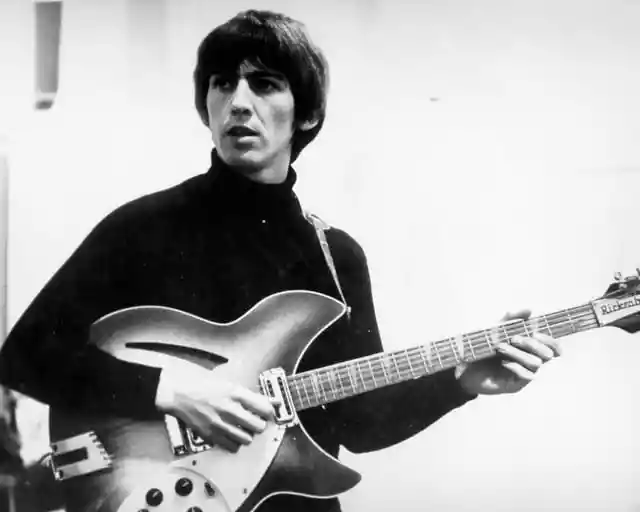
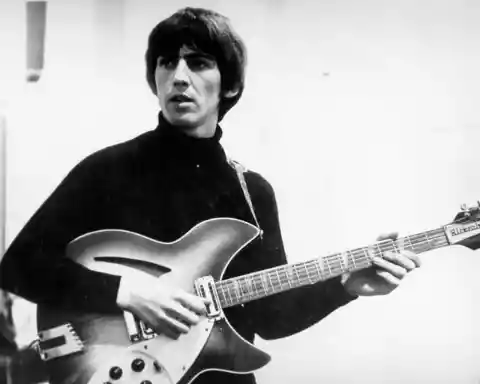
His impact on music is immeasurable, and his legacy continues to inspire musicians around the world. Even today, Harrison's work is still inspiring new musicians - with the Beatles' 'final single' Now and Then released this very year, and showcasing more of Harrison's skill.
Jack White
Next up, Jack White, a true modern rock maestro. His raw guitar style, whether with The White Stripes, or as a solo artist, is raw, distinctive and invigorating. Ever heard the riff from Seven Nation Army? Of course, you have; it’s become an anthem.


As a keen advocate for musical authenticity, White often still insists on using vintage equipment to get that gritty, raw sound. Alongside his illustrious guitar career, White has also successfully made moves in Hollywood, cementing himself as an all-round superstar.
Brian May
With his towering hair and homemade guitar, Brian May is an iconic figure in the world of rock. As the lead guitarist for Queen, May crafted some of the most memorable riffs and solos in music history, from Bohemian Rhapsody to We Will Rock You. His guitar playing is grand, theatrical, and utterly unique.


While Freddie Mercury, with his flamboyant stage presence and magnificent vocals, was considered by many to be the heart of Queen, it was May's guitar work that gave Mercury the musical framework he so delighted to play within.
Jerry Garcia
Jerry Garcia, the Grateful Dead’s frontman, wasn’t just a guitarist; he was an experience. His improvisational skills and ability to blend genres made every Dead concert unique. In 1994, Garcia was inducted into the Rock and Roll Hall of Fame.
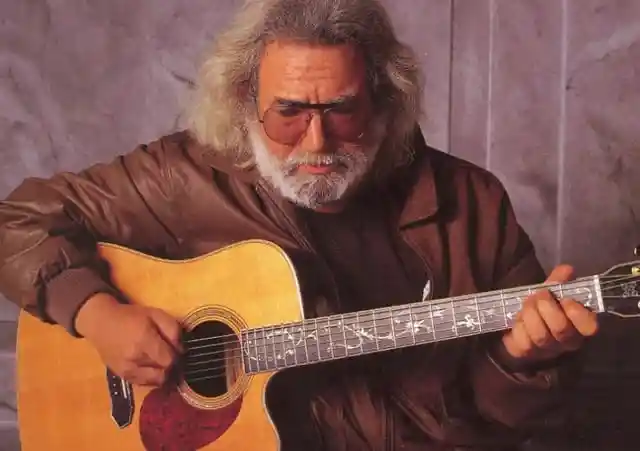
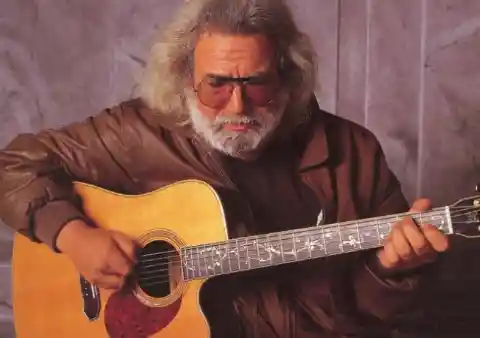
Although he was always reluctant to call himself so, Garcia was considered by many to be the lead of the band. Tracks like Touch of Grey and Sugar Magnolia showcase Garcia’s genius. Garcia’s guitar work remains as timeless as his band’s tie-dye shirts.
Eric Clapton
Of course, no list would be complete without Slowhand himself, Eric Clapton. A three-time Rock and Roll Hall of Fame inductee, Clapton’s guitar skills are legendary. From the soulful Layla to the mournful Tears in Heaven, Clapton’s mastery is inarguable, and he’s made as much impact as a solo artist as with iconic bands The Yardbirds, Cream and Derek and the Dominos.
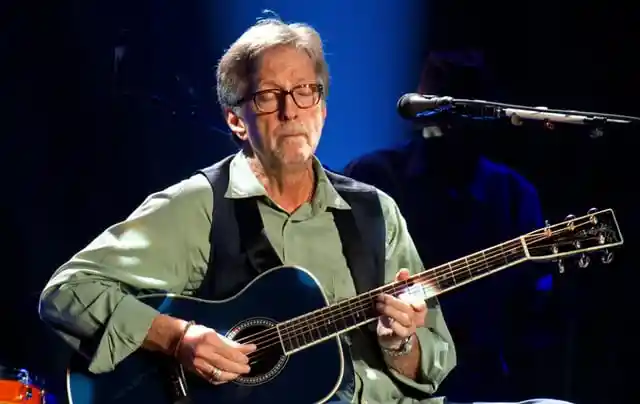

While Clapton might have a past of problematic outbursts and has alienated a few of his fans in recent years with some controversial political opinions, his legacy as one of rock's greatest musicians stands firm.
Elizabeth Cotton
Elizabeth Cotton, or Libba as she was known, was a true pioneer. With her unique, self-taught, upside-down guitar-playing style, she gave us folk classics like Freight Train. Cotton started playing the guitar in her early childhood and continued well into her eighties.
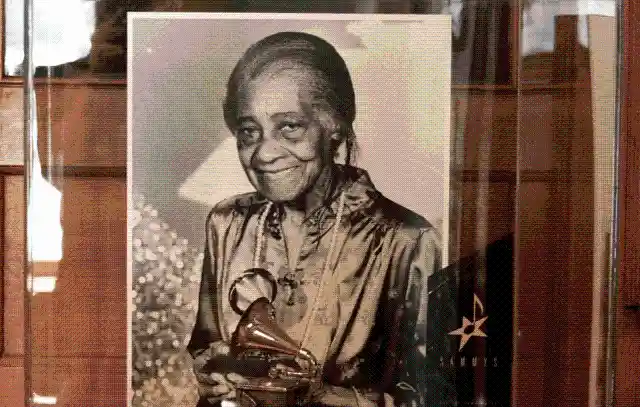
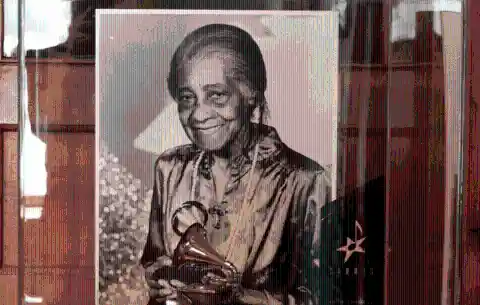
In 2022, Cotten was posthumously inducted into the Rock and Roll Hall of Fame as an Early Influence. Her remarkable influence as a female guitarist in a male-dominated space cannot be understated.
Pete Townshend
Iconic for his aggressive guitar playing and unique windmill arm motion, Pete Townshend of The Who turned live performances into an electrifying spectacle. Smash hits like Pinball Wizard and My Generation are testaments to his talent and vision as a songwriter.
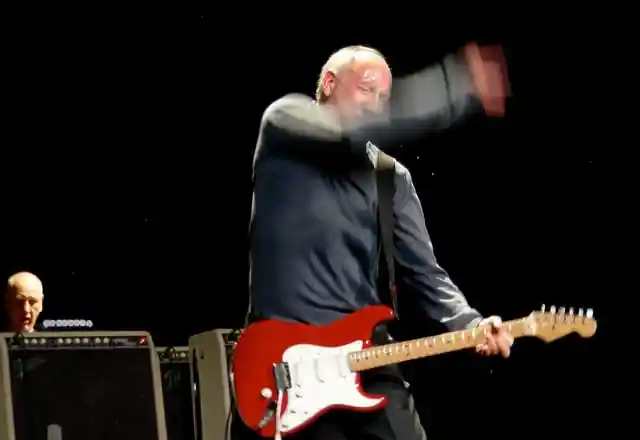
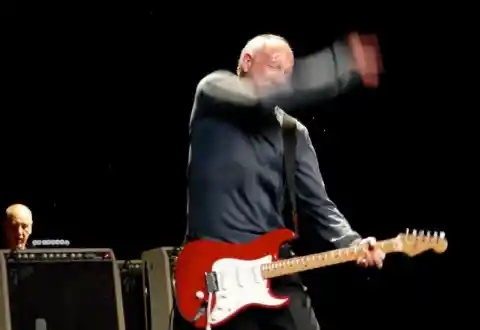
Townshend also remains just as renowned for popularizing the act of trashing his guitar on stage at the end of his shows, as well as - like all good rock stars - various hotel rooms around the US.
Angus Young and Malcolm Young
AC/DC’s Angus and Malcolm Young’s guitar riffs are some of the most iconic in rock history. Angus, with his trademark schoolboy uniform, and Malcolm, providing the rhythmic backbone, created magic together.
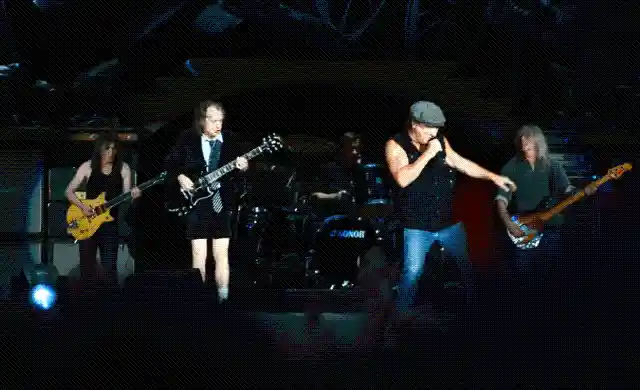

Back in Black and Highway to Hell are just a few of their masterpieces. They not only left a mark on rock ‘n’ roll, but also on our eardrums.
Chet Atkins
Known for his signature fingerpicking style, Atkins has inspired countless guitarists around the world. His genre-blending mix of country, jazz, and classical music has created a sound that’s uniquely his.
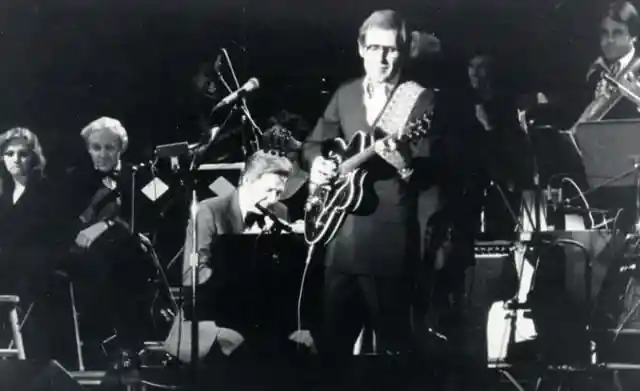
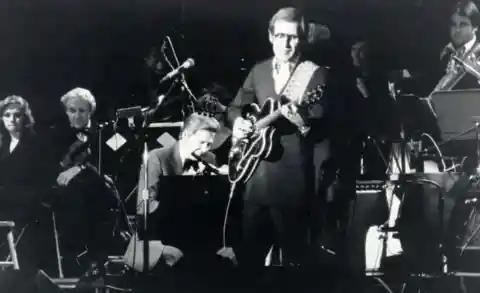
With classics like Mr. Sandman and Yakety Axe, Atkins proved that country guitar could be both soulful and technically brilliant. He wasn’t called ‘Mr. Guitar’ for nothing.
John Fahey
And then, there’s John Fahey, the father of American Primitive Guitar. Fahey was a true innovator, blending folk, blues, and classical music to create a style entirely his own. His techniques were groundbreaking, giving us timeless tracks like Sunflower River Blues.
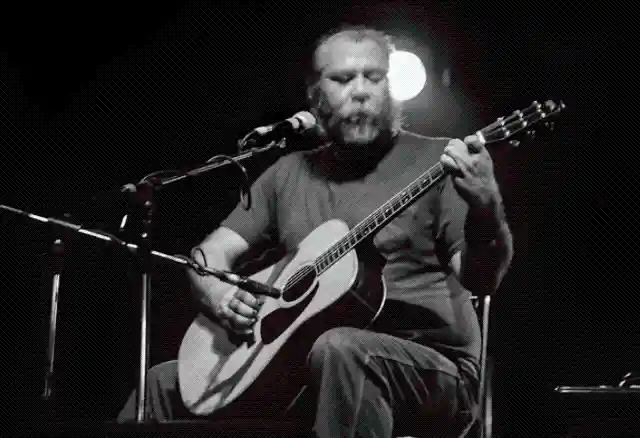
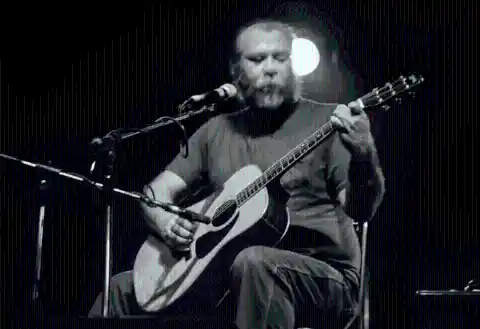
Fahey's music calls to mind images of a vast frontier, unsullied by the modern world. Captain Beefheart's Gary Lucas described it best, once stating: “his music speaks of a boundless freedom.”